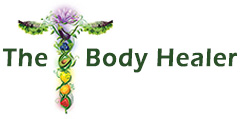Why Breast Feeding Is Important
 Even though breast feeding is completely natural, it may feel awkward and strangely unnatural at first. Being comfortable with it is not an immediate thing some moms, and having to go through your own adjustment period is perfectly normal.
Even though breast feeding is completely natural, it may feel awkward and strangely unnatural at first. Being comfortable with it is not an immediate thing some moms, and having to go through your own adjustment period is perfectly normal.
Breast feeding is a natural part of having a child. There is no ideal substitute for breast milk, no matter what any pediatrician tells you. Not only that, studies show that breast fed babies suffer far less infections and allergies (see below). Many doctors are either unaware of or do not pay enough attention to these studies.
When it comes to excuses not to breastfeed, please seriously consider not making them. Many new mothers look for reasons to not breast feed:
- It's too frustrating, causing some mom's to give up too quickly.
- The irritation of cracked nipples.
- The perceived inconvenience of the entire process.
- Some are not comfortable with their own bodies and are simply put off by the thought of it.
Other moms begin breast feeding but become quickly discouraged by the difficulties they experience. If you are pulling your hair out when it comes to breast feeding, don't give up! Instead, read up on some helpful tips...
Overcoming breast-feeding challenges...
If there are no health related reasons preventing you from breast feeding, you are doing your baby a great disservice by not giving them what nature provides as their perfect first food. Any doctor who tells you that manufactured, processed milk formulas are comparable to human breast milk needs a lesson in understanding why processed food in unhealthy and what happens to milk during pasteurization. Pasteurized milk is unhealthy and has a detrimental impact on the body of a newborn.
Pasteurized vs. breast milk: A big difference...
Here are some important reasons babies should be breast fed:
|
- Breast-fed babies have less health issues than bottle-fed babies because of the immunity factors naturally inherent in breast milk that can never be duplicated artificially in a lab. These immunity factors are not present in pasteurized milk and can impact a baby's developing immune system.
- Breast fed babies are much less likely to have ear infections. A landmark study in Finland using 237 healthy babies concluded that not only did breast fed babies have lower incidences of ear infections, but the longer an infant was breast fed, the fewer ear infections they had. Babies fed formula during the first few months were the most susceptible to ear infections.
- Pasteurizing milk destroys its nutritional value, including the enzymes that help a baby properly predigest the milk protein. During pasteurization, milk is heated to the point that renders the calcium unusable. The unabsorbed calcium is then deposited in the soft tissues of the body to calcify. Pasteurization also damages other nutrients such as vitamin C and iodine.
- Pasteurization of milk causes the milk protein to coagulate and toughen, making it less available to the body.
- When it comes to omega-3 fatty acids, the DHA in breast milk gives an important health advantage over formula feeding. Even though the concentration of DHA in breast milk is very small, the brains of breast-fed infants accumulate 50% more DHA than those of infants fed formulas that do not contain these fatty acids. Studies have shown that when a mom improves her DHA levels by supplementing with cod liver oil during pregnancy and the first 3 months of lactation, it was found to improve her child’s IQ.(1)(2)
- Breast milk builds not only stronger babies, but its effects carry through to childhood and adulthood. Breast fed babies suffer less infections, allergies, colic, diarrhea, eczema, upper and lower respiratory infections, skin disorders, and other illnesses.
- The compounds in breast milk are necessary for the growth of a baby's immune system. Research has shown that breast fed infants are less likely to get diabetes and certain types of cancer, which may be due to the immunity factors required (and present in breast milk) for the development of an immune system.
- Breast fed babies may be more intelligent. British researchers discovered that children who were breast fed had IQ points 8.3% higher than formula fed babies. Not only that, but the more breast milk a baby drank, the smarter they were likely to be. Infants, especially those born prematurely, are growing at a rapid rate, and this includes their brain and nervous system. Breast milk contains all the vital nutrients for proper neurological development.
- The processed food world of today is the foundation for the serious chronic diseases suffered today. Feeding a baby processed milk products is feeding a baby processed food, and this can never be considered the healthiest choice.
- Breast feeding helps bring you closer to your baby and develop a deeper emotional bond. It can also help boost your confidence as a parent.
RELATED ARTICLES
- Why kids are getting sicker & fatter
- Before birth - prenatal care
- Baby's first food
- Beginning solid food
- Healthy eating guide for children
- Why breast feeding is important
- Bone broth
- Pasteurized vs. raw dairy
- The health benefits of raw milk
- The importance of organic during pregnancy
- Serious dangers of pesticides in our food
- Vaccinations & children
- Healthy, strong teeth
- Tips on raising happy & healthy children
- Nurturing creativity & individuality
- Discipline & setting boundaries



